Miss Kamsiyochukwu Umeh, the best performing candidate in the last Unified Tertiary Matriculation Examinations, may have just four years of university education to leave Nigeria.
She scored a rare 360 out of 400, meaning that she correctly answered 90% of the questions set. In the results of the West African School Certificate Examinations (WSSCE) released this week, she again struck premium grades (A1) in eight out of nine subjects. She had a B2 in one subject. That young girl represents the heartbreaking scenario of talents daily lost to the costly pursuit of Golden Fleece abroad.
Join our WhatsApp ChannelAn indigene of Anambra State in Southeast Nigeria, Miss Umeh is currently an SS3 science student of the Deeper Life High School, Mowe, Ogun State. According to the school’s administrator, Pastor Eze Emmanuel, 45 students scored over 300 in UTME. Of the 139 students who sat the UTME in the school, 46 scored above 300; 65 made between 250 and 299; 27 students made between 200 and 245, while only one student scored 197. Anrew Imoukhuede, who scored 355, also had 99 per cent in Mathematics.
While it might seem an advertisement for the Deeper Life High School, it is really important to praise the efforts of that school just as many others, which are also doing well. The students are some of the few lucky ones to attend the kind of secondary school described by the brilliant Kamsiyochukwu. Great parental care, discipline, conducive environment for learning, zero tolerance for exam malpractice, hard work and undistracted voracious reading. These qualities are comatose, if not outright dead, in most Nigerian secondary schools and universities for which rich parents decide to go abroad.
READ ALSO: The Trouble With Education In Nigeria
The Drift Abroad is Strategic
In 2022, the United Nations Education and Scientific Cultural Organization said that Nigeria had 71,753 students studying abroad. This number should have given hope to the country assuming the future scholars will return to fill the labour gaps. But will they? At least 98% unlikely. More than 92% of them stole away illegally or were seduced abroad by attractive scholarships and programmes through which Nigeria’s top potentials are siphoned overseas. Grinding poverty indicated in a GDP of $1 purchasing power parity, collapsed educational system, insecurity, poor reward for excellence, unemployment, lack of opportunities, nepotism and corruption combine to scare young people out of Nigeria.
According to UNESCO, a higher disposable income and general affluence are important factors in the thirst for international education among Nigerians. But many in the country will dispute this fact given that less than 7% of those studying abroad are in top universities. Similarly, 12% (14,438) of the 71,753 Nigerian students abroad are in US universities, likely suggesting a desire for top quality education. However, recent experience has associated the rising number of US intake of Nigerian students with the desire for viable job opportunities while schooling. This is in addition to a dragnet filled with attractive offers from US institutions whose attempts to attract Nigerian students are clearly strategic. The United States Consulate in Nigeria gave out the sum of $4.35 million to 30 Nigerians in the 2021/2022 academic session. In the 2021 academic year, another $28 million in scholarships was received by students through the EducationUSA Nigeria services and sundry education-related financial aid. Table 1 below gives an indication of the top-notch quality of Nigerian students abroad, with majority interest in science, technology, engineering and mathematics (STEM) subjects.
Clearly, not much is in the works to stem the student exodus from Nigeria. On the contrary, there are more than seven cases of daily advertisements of opportunities in exchange programmes, scholarships, post-doctoral fellowships, grants, postgraduate studies and outright migration visas. Combined with poor pay and continued government neglect of the universities, 70% of the best experienced hands have left the universities, according to Dele Ashiru, chairman of ASUU in the University of Lagos. Fewer than five of Nigeria’s 260 universities are known to make any such offers to foreign students resulting in over 98% indigenous students in both undergraduate and postgraduate programmes. More than 90% of lecturers are indigenous to the state where the universities are located, especially in state universities.
Top Areas of Study for Nigerian Students (Source UNESCO 2023)
| Major Field of Specialization | 2021/2022 (%) |
| Business & Management | 11.4 |
| Education | 2.3 |
| Engineering | 19.5 |
| Fine and Apllied Arts | 2.2 |
| Health Professions | 2.4 |
| Humanities | 2.7 |
| Intensive English | 0.1 |
| Maths/Computer Science | 4.6 |
| Physical & Life Sciences | 15.9 |
| Social Sciences | 7.6 |
| Other fields of Study | 10.3 |
| Undeclared | 0.9 |
Kamsiyochukwu Is On A Right Path To LASU, But…
Judging in relative terms, Miss Umeh seems headed to the right place. She has applied to study chemical engineering at the Lagos State University (LASU). LASU ranked among the top 600 in the world and second best in Nigeria according to the Times Higher Education University World ranking for 2020. LASU was the 2021 best young (below 50 years) university in Nigeria. The university was the only state university included in the ranking in 2022. It has funding for the establishment of a World Bank Group Africa Centre of Excellence in STEM subjects.
However, it is noteworthy also that LASU matriculated a total of 10,301 students in June 2023 out of the 40,000 UTME applications. The institution currently has an estimated 35,000 students, with 11 faculties and about 81 departments. Therefore, it has an average of 432 students per class. This is high both in terms of lecturer to student ratio and the size of the classrooms, some of which were originally build to take 80 students.
With its student size, the university did not have a campus-based hostel for over 36 years since its founding in 1983. In December 2019, Governor Babajide Sanwo-Olu entered into an agreement with six private operators to build an 8,272 hostels units, which will house just 30% (10,500) of the student population. The others will continue to heckle in high-price, but low quality ‘off-campus’ accommodations, which may have contributed more to deviance than to learning across Nigerian universities. Thankfully, the hostels (8230 as unveiled) are up and running, having been unveiled during the 24th convocation ceremonies of the institution on December 17, 2020.
READ ALSO:University Degree Versus HND: Certificate Or ‘Sabificate?
For years, the Nigerian educational system has faced criticism for poorly rewarding excellence. There was national outrage recently when three best graduating students from UNN (all scoring 4.67 out of 5 points) were asked to share the some of N500 as cash award. In 2017, the best graduating mass communication student in Chukwuemeka Odumegwu University, Anambra State, Best Somadina, was given a tuber of yam, a fowl and a certificate, much to his surprise as he spoke to the BBC. Bamisaye Tosin received N200 for coming top at the Ekiti State University’s Civil Engineering department. Similarly, in 2016, Hilkmat Oluwole, the best graduating student of the Department of Arabic and Islamic Studies in the University of Ibadan was given N2000.
Kamsiyochukwu has been offered a scholarship to study at the Nnamdi Azikiwe University, though Mr Uzonna Umeh, Kamsiyochukwu’s father, told journalists recently that his family was yet to be contacted by the University following newspaper publications on the offer. Mr Umeh also disclosed an offer from JAMB Registrar, Prof. Ishaq Oloyede, who called him to announce a promised award from the Nigerian Society of Women Engineers. While this is great, it is expected that the Nigerian system should not only acknowledge such stellar performances, but should also harness them properly, first by shielding them from the clutches of probing scouts flaunting juicy offers for studies abroad. ALSO READ: Top PBA Headlines Of The Week
Dr Mbamalu is a veteran journalist, Editor and publisher
Follow on Twitter: @marcelmbamalu

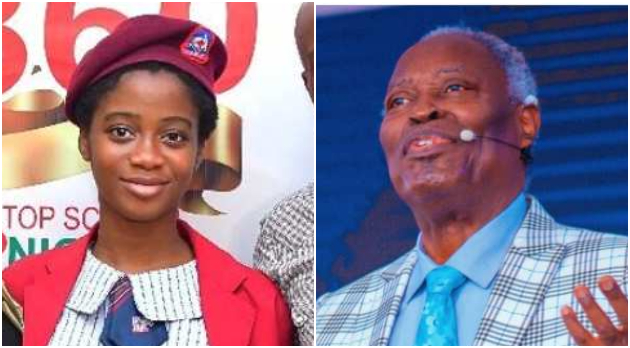



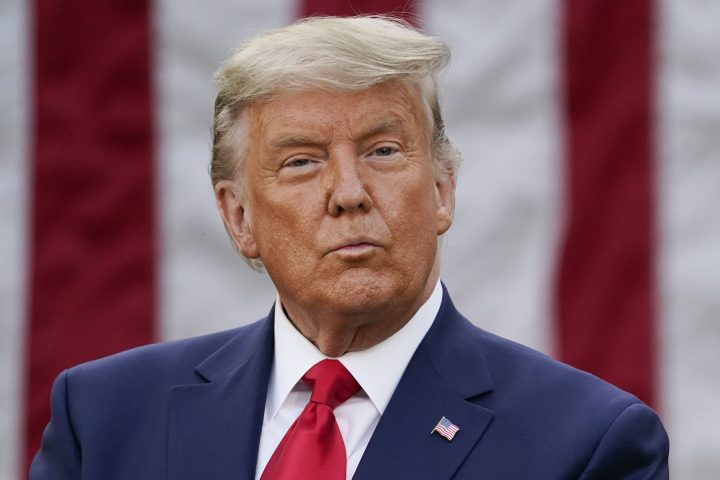







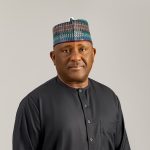
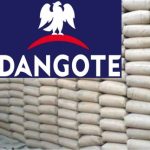
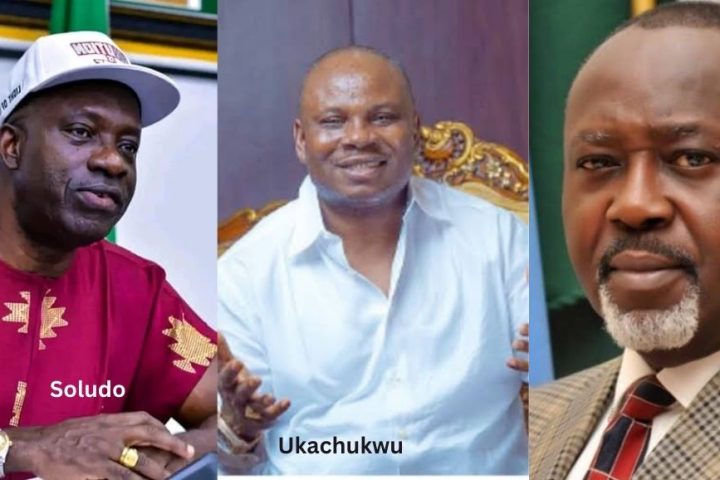
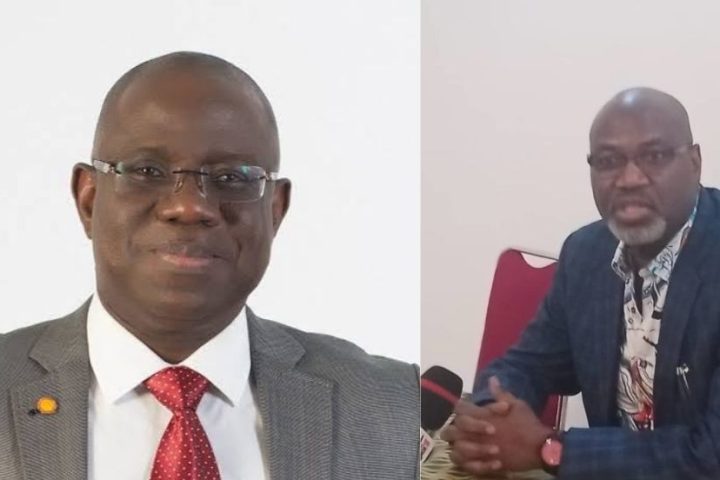
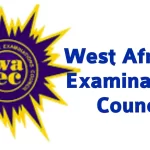
Umeh is a deity that influence losses and reckless abandon..Go to ideato LGA in Imo State and observe the mystery of Umeh there
Kudos! All glory to God in the highest.
A masterpiece write-up on the reality of Nigerian educational system, challenges and brain drain.
However, the writer besides suggesting nesting of glorious brains did not hammer on the need for Nigerian Governments, particularly the Federal and State, to invest appropriately in the country’s educational system through massive investment in infrastructure and the provision of scholarship boards to reward academic excellence.
Nigeria, with so much intelligent population, should be in the forefront of intellectual export for Direct Foreign Income (DFI), if actually the Federal Government knowns what it is doing.